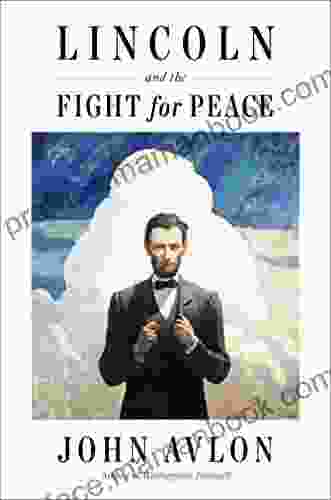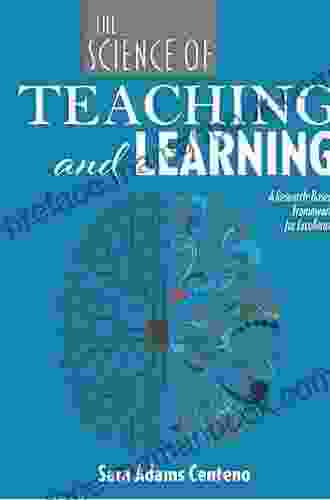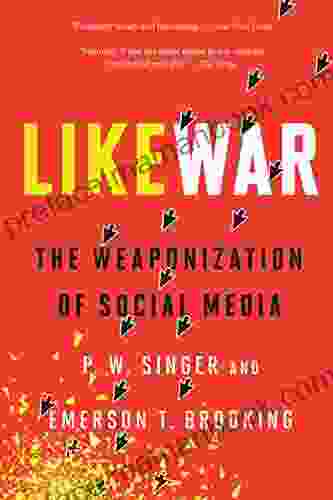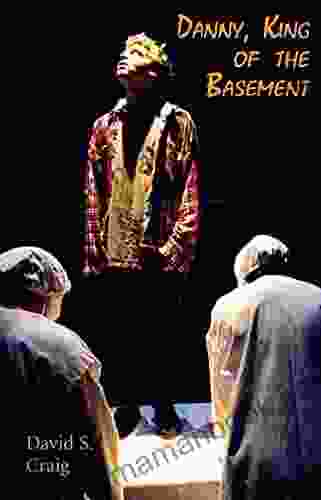Abraham Lincoln and the Fight for Peace

Abraham Lincoln, the 16th president of the United States, is remembered as one of the most important figures in American history. He led the Union to victory in the American Civil War, and his Emancipation Proclamation freed the slaves in the Confederate states. Lincoln was also a strong advocate for peace, and he worked to end the war as quickly as possible.
4.8 out of 5
| Language | : | English |
| File size | : | 76049 KB |
| Text-to-Speech | : | Enabled |
| Screen Reader | : | Supported |
| Enhanced typesetting | : | Enabled |
| Word Wise | : | Enabled |
| Print length | : | 356 pages |
Lincoln was born in Kentucky in 1809. He grew up in poverty, but he was a hard worker and a quick learner. He eventually became a lawyer and a politician. In 1860, he was elected president of the United States.
The United States was on the brink of civil war when Lincoln took office. The Southern states were demanding the right to secede from the Union, and the Northern states were determined to keep the Union together. Lincoln believed that the Union should be preserved, but he also wanted to avoid war.
Lincoln tried to negotiate with the Southern states, but he was unsuccessful. In April 1861, Confederate forces attacked Fort Sumter in South Carolina, and the American Civil War began.
The Civil War was a long and bloody conflict. Lincoln was determined to win the war, but he also wanted to end it as quickly as possible. He issued the Emancipation Proclamation in 1863, which freed the slaves in the Confederate states. The Proclamation helped to turn the tide of the war in favor of the Union.
The war ended in 1865 with the Union victory. Lincoln was assassinated shortly after the war ended. He is remembered as one of the greatest presidents in American history.
Lincoln's Peace Efforts
Lincoln was a strong advocate for peace. He believed that war was a terrible thing, and he wanted to avoid it whenever possible.
Lincoln tried to negotiate with the Southern states before the Civil War began. He offered to make concessions to the South, but the Southerners were not willing to compromise.
Once the war began, Lincoln worked to end it as quickly as possible. He issued the Emancipation Proclamation, which helped to turn the tide of the war in favor of the Union. He also met with Confederate leaders to try to negotiate a peace settlement.
Lincoln's peace efforts were unsuccessful, but he never gave up hope. He believed that peace was possible, and he worked for it until the day he died.
Lincoln's Legacy
Lincoln is remembered as one of the greatest presidents in American history. He led the Union to victory in the Civil War, and his Emancipation Proclamation freed the slaves in the Confederate states. Lincoln was also a strong advocate for peace, and he worked to end the war as quickly as possible.
Lincoln's legacy is one of peace and reconciliation. He believed that all people are created equal, and he worked to create a more just and equitable society. Lincoln's dream of peace and unity has not yet been fully realized, but his work continues to inspire people around the world.
4.8 out of 5
| Language | : | English |
| File size | : | 76049 KB |
| Text-to-Speech | : | Enabled |
| Screen Reader | : | Supported |
| Enhanced typesetting | : | Enabled |
| Word Wise | : | Enabled |
| Print length | : | 356 pages |
Do you want to contribute by writing guest posts on this blog?
Please contact us and send us a resume of previous articles that you have written.
 Top Book
Top Book Novel
Novel Fiction
Fiction Nonfiction
Nonfiction Literature
Literature Paperback
Paperback Hardcover
Hardcover E-book
E-book Audiobook
Audiobook Bestseller
Bestseller Classic
Classic Mystery
Mystery Thriller
Thriller Romance
Romance Fantasy
Fantasy Science Fiction
Science Fiction Biography
Biography Memoir
Memoir Autobiography
Autobiography Poetry
Poetry Drama
Drama Historical Fiction
Historical Fiction Self-help
Self-help Young Adult
Young Adult Childrens Books
Childrens Books Graphic Novel
Graphic Novel Anthology
Anthology Series
Series Encyclopedia
Encyclopedia Reference
Reference Guidebook
Guidebook Textbook
Textbook Workbook
Workbook Journal
Journal Diary
Diary Manuscript
Manuscript Folio
Folio Pulp Fiction
Pulp Fiction Short Stories
Short Stories Fairy Tales
Fairy Tales Fables
Fables Mythology
Mythology Philosophy
Philosophy Religion
Religion Spirituality
Spirituality Essays
Essays Critique
Critique Commentary
Commentary Glossary
Glossary Bibliography
Bibliography Index
Index Table of Contents
Table of Contents Preface
Preface Introduction
Introduction Foreword
Foreword Afterword
Afterword Appendices
Appendices Annotations
Annotations Footnotes
Footnotes Epilogue
Epilogue Prologue
Prologue Meyrick Chapman
Meyrick Chapman Vasavi R
Vasavi R Simon R Green
Simon R Green Moisha Michelle
Moisha Michelle Daniel Robinson
Daniel Robinson Regina G Richards
Regina G Richards Oren Jay Sofer
Oren Jay Sofer Kimberly Morrow Leong
Kimberly Morrow Leong Wayne W Dyer
Wayne W Dyer Ted W Lawson
Ted W Lawson Alex Garland
Alex Garland D Celestino
D Celestino Peter Redgrove
Peter Redgrove Wayne Miller
Wayne Miller P W Singer
P W Singer Celine A Saulnier
Celine A Saulnier Allie Boniface
Allie Boniface Beau Taplin
Beau Taplin Kody Boye
Kody Boye Elizabeth Hoover
Elizabeth Hoover
Light bulbAdvertise smarter! Our strategic ad space ensures maximum exposure. Reserve your spot today!
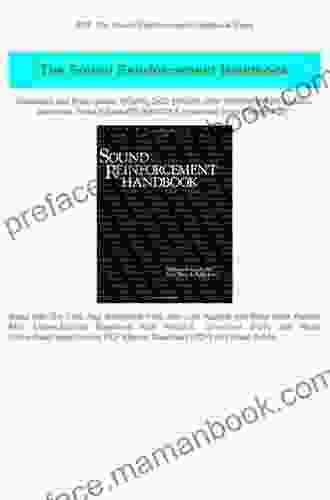
 Richard SimmonsThe Sound Reinforcement Handbook: A Comprehensive Guide for Audio Engineers...
Richard SimmonsThe Sound Reinforcement Handbook: A Comprehensive Guide for Audio Engineers...
 Curtis StewartBeadweaving Brick Stitch Technique Earrings Collection: Beading Patterns for...
Curtis StewartBeadweaving Brick Stitch Technique Earrings Collection: Beading Patterns for... Reed MitchellFollow ·19.9k
Reed MitchellFollow ·19.9k Jarrett BlairFollow ·17.9k
Jarrett BlairFollow ·17.9k Oliver FosterFollow ·15.7k
Oliver FosterFollow ·15.7k Gordon CoxFollow ·11.2k
Gordon CoxFollow ·11.2k John UpdikeFollow ·18.6k
John UpdikeFollow ·18.6k Dwight BlairFollow ·14k
Dwight BlairFollow ·14k Calvin FisherFollow ·10.2k
Calvin FisherFollow ·10.2k Roald DahlFollow ·16.8k
Roald DahlFollow ·16.8k

 Vincent Mitchell
Vincent MitchellUnveiling the Enchanting Tale of Plant Reproduction: A...
Plants, the silent yet vibrant...

 Sam Carter
Sam CarterDelve into the Enigmatic World of "Relative Murder: A...
In the realm of mystery and suspense, the...

 Richard Simmons
Richard SimmonsThe Sound Reinforcement Handbook: A Comprehensive Guide...
In the realm of live sound engineering, The...

 Leo Tolstoy
Leo TolstoyEnter the New Era of Cyberwar: Unmasking the Kremlin's...
`` Prologue: The Digital...

 Brenton Cox
Brenton CoxFirst Lessons Ukulele Bridget Baker: A Comprehensive...
Embarking on a musical journey with the...
4.8 out of 5
| Language | : | English |
| File size | : | 76049 KB |
| Text-to-Speech | : | Enabled |
| Screen Reader | : | Supported |
| Enhanced typesetting | : | Enabled |
| Word Wise | : | Enabled |
| Print length | : | 356 pages |


